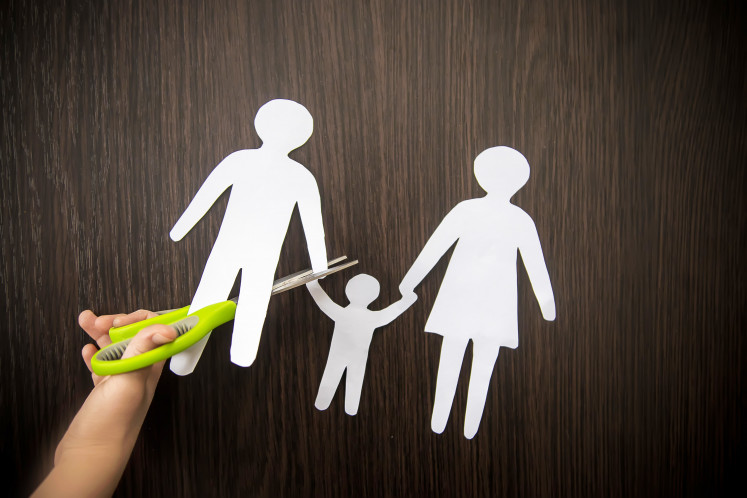Popular Reads
Top Results
Can't find what you're looking for?
View all search resultsPopular Reads
Top Results
Can't find what you're looking for?
View all search resultsIdentifying latte factor for frugal living
Sitting at a coffee shop with a laptop open while browsing online stores on free Wi-Fi is harmless. However, that kind of lifestyle can lead to a financial mess.
Change text size
Gift Premium Articles
to Anyone
W
hile lifestyle is defined by how a person spends their money and time, given today’s circumstances, where people tend to spend their time mostly outside, everyday spending is inevitable.
This unconscious spending on trivial things may add up over time, a phenomenon called the latte factor — a term coined by finance guru David Bach in his book titled Finish Rich.
Ivy Wijaya, head of customer segmentation and marketing of private-owned PermataBank said the latte factor could also include things most people in urban cities consider as basic necessities, such as a bottle of water, a taxi fare, snacks, interbank transaction fees and fashion items.
Internal data collected by the bank found that 7.5 out of 10 respondents have spent a minimum of Rp 900,000 (US$68) per month for the latte cover — single and married alike.
“If that amount of spending goes into savings, it could be spent paying credit installments to own property or a vehicle or even spent on traveling,” she said.
Read also: Saving is (not) hard
Citing a 2016 report on Indonesia’s financial literacy made by the Financial Services Authority (OJK), only 29.66 percent of respondents have knowledge about financial products but only 67.82 percent of that figure have utilized financial products.
“Saving is still not a priority although the figure has increased by 10 percent compared to the report in 2013,” said Ivy at a recent media gathering to re-introduce the bank’s social movement “Sayang Uangnya” (Save Money).
The OJK report, she said, received support from the findings in a survey held by Kadence International Indonesia. The survey, titled “Share Your Wallet”, categorized the respondents in four groups.
The first one is the “on edge”, the largest group at 34 percent. They spend all their earnings with nothing to save. Next is the “broke” group, which accounted for 28 percent of respondents, who saved more than the “on edge” group but every month suffered a deficit up to 35 percent.
“The ‘deep pocket’ group at 21 percent saves half of what they earn every month. The ‘pragmatic’ group at 17 percent saves 25 percent of their earnings,” said Ivy.
To turn the table, she added, people have to be aware of the latte factor to be able to save.
Read also: Four signs you have too much debt
Psychologist Ajeng Raviando said the latte factor is closely related to instant gratification, which characterizes the millennial, those who were born between 1980 and 2000.
“This generation tends to work and play at the same time, the notion that makes them prone to consumerism traps,” she said.
Actor and travel program host Hamish Daud Wyllie, an icon for the social movement, acknowledged he spent a large amount of his earnings going to coffee shops or dining out.
“Now I bring my own coffee and cook. I think twice when I’m about to buy something, and I set plans, such as traveling, as motivation to save.”
PermataBank director for retail banking, Bianto Surodjo, said the ‘‘Sayang Uangnya’’ campaign was reintroduced due to its success last year in encouraging customers to save.
“The financial problems faced by people is not derived from the amount of their earnings, but their lack of knowledge to manage their money,” he said, adding that the nationwide campaign is also supported by radio stations, Delta FM, Radio Prambors and Bahana FM, in giving out tips on frugal living to listeners.
“The campaign aims to encourage millennials to prioritize their future while educating them about financial management.”
How to stop consumerism
Source: Psychologist Ajeng Raviando
- Stop and count to ten before opening the site of your favorite online store after receiving notifications on shopping discounts or before booking food deliveries online.
- Think before buying. You can buy an umbrella when it rains. It’s a priority. However, you can brew coffee at home or at the office.
- Observe and ask yourself, why would you buy a luxurious laptop if you can find all the features you need in an affordable one?
- Proceed using cash or credit, if you decide to make a purchase. The maturity term of the credit and the amount of the payment should be considered.











